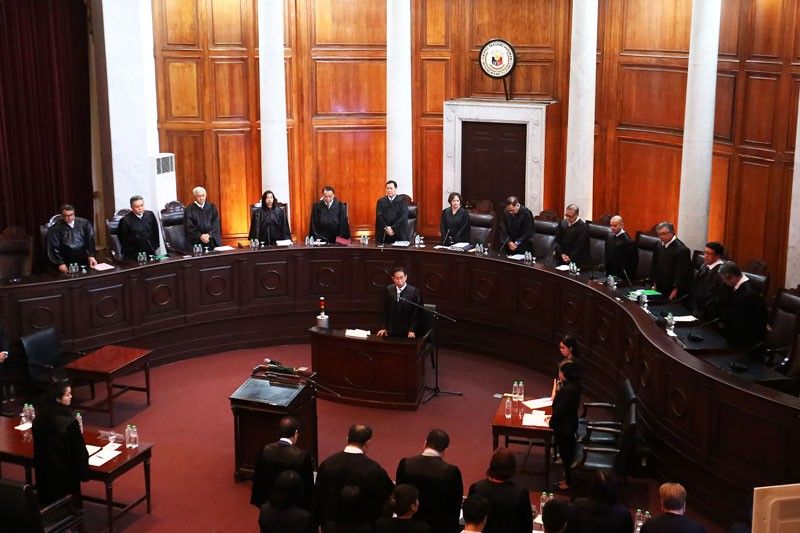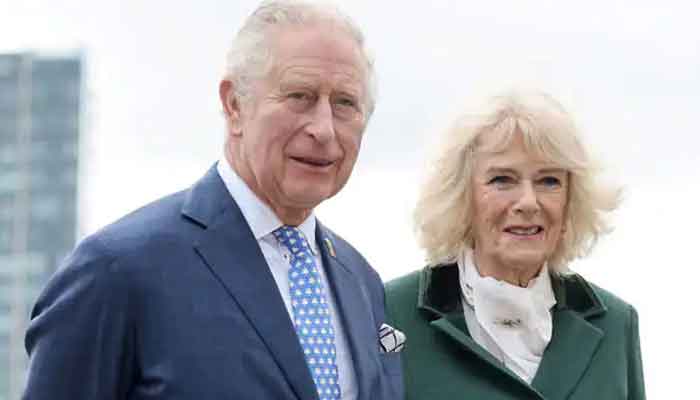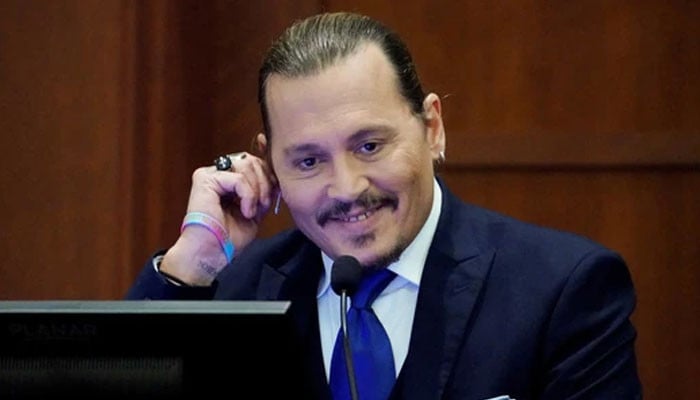G.R. No. 109248, July 03, 1995
315 Phil. 573
GREGORIO F. ORTEGA, TOMAS O. DEL CASTILLO, JR., AND BENJAMIN T. BACORRO, PETITIONERS, VS. HON. COURT OF APPEALS, SECURITIES AND EXCHANGE COMMISSION AND JOAQUIN L. MISA, RESPONDENTS.

THIRD DIVISION
[ G.R. No. 109248, July 03, 1995 ]
GREGORIO F. ORTEGA, TOMAS O. DEL CASTILLO, JR., AND BENJAMIN T. BACORRO, PETITIONERS, VS. HON. COURT OF APPEALS, SECURITIES AND EXCHANGE COMMISSION AND JOAQUIN L. MISA, RESPONDENTS.
D E C I S I O N
VITUG, J.:
The instant petition seeks a review of the decision rendered by the Court of Appeals, dated 26 February 1993, in CA-G.R. SP No. 24638 and No. 24648 affirming in toto that of the Securities and Exchange Commission ("SEC") in SEC AC 254.
The antecedents of the controversy, summarized by respondent Commission and quoted at length by the appellate court in its decision, are hereunder restated.
On appeal, the SEC en banc reversed the decision of the Hearing Officer and held that the withdrawal of Attorney Joaquin L. Misa had dissolved the partnership of "Bito, Misa & Lozada." The Commission ruled that, being a partnership at will, the law firm could be dissolved by any partner at anytime, such as by his withdrawal therefrom, regardless of good faith or bad faith, since no partner can be forced to continue in the partnership against his will. In its decision, dated 17 January 1990, the SEC held:
The parties sought a reconsideration of the above decision. Attorney Misa, in addition, asked for an appointment of a receiver to take over the assets of the dissolved partnership and to take charge of the winding up of its affairs. On 04 April 1991, respondent SEC issued an order denying reconsideration, as well as rejecting the petition for receivership, and reiterating the remand of the case to the Hearing Officer.
The parties filed with the appellate court separate appeals (docketed CA-G.R. SP No. 24638 and CA-G.R. SP No. 24648).
During the pendency of the case with the Court of Appeals, Attorney Jesus Bito and Attorney Mariano Lozada both died on, respectively, 05 September 1991 and 21 December 1991. The death of the two partners, as well as the admission of new partners, in the law firm prompted Attorney Misa to renew his application for receivership (in CA G.R. SP No. 24648). He expressed concern over the need to preserve and care for the partnership assets. The other partners opposed the prayer.
The Court of Appeals, finding no reversible error on the part of respondent Commission, AFFIRMED in toto the SEC decision and order appealed from. In fine, the appellate court held, per its decision of 26 February 1993, (a) that Atty. Misa's withdrawal from the partnership had changed the relation of the parties and inevitably caused the dissolution of the partnership; (b) that such withdrawal was not in bad faith; (c) that the liquidation should be to the extent of Attorney Misa's interest or participation in the partnership which could be computed and paid in the manner stipulated in the partnership agreement; (d) that the case should be remanded to the SEC Hearing Officer for the corresponding determination of the value of Attorney Misa's share in the partnership assets; and (e) that the appointment of a receiver was unnecessary as no sufficient proof had been shown to indicate that the partnership assets were in any such danger of being lost, removed or materially impaired.
In this petition for review under Rule 45 of the Rules of Court, petitioners confine themselves to the following issues:
1. Whether or not the Court of Appeals has erred in holding that the partnership of Bito, Misa & Lozada (now Bito, Lozada, Ortega & Castillo) is a partnership at will;
2. Whether or not the Court of Appeals has erred in holding that the withdrawal of private respondent dissolved the partnership regardless of his good or bad faith; and
3. Whether or not the Court of Appeals has erred in holding that private respondent's demand for the dissolution of the partnership so that he can get a physical partition of partnership was not made in bad faith;
to which matters we shall, accordingly, likewise limit ourselves.
A partnership that does not fix its term is a partnership at will. That the law firm "Bito, Misa & Lozada," and now "Bito, Lozada, Ortega and Castillo," is indeed such a partnership need not be unduly belabored. We quote, with approval, like did the appellate court, the findings and disquisition of respondent SEC on this matter; viz:
The birth and life of a partnership at will is predicated on the mutual desire and consent of the partners. The right to choose with whom a person wishes to associate himself is the very foundation and essence of that partnership. Its continued existence is, in turn, dependent on the constancy of that mutual resolve, along with each partner's capability to give it, and the absence of a cause for dissolution provided by the law itself. Verily, any one of the partners may, at his sole pleasure, dictate a dissolution of the partnership at will. He must, however, act in good faith, not that the attendance of bad faith can prevent the dissolution of the partnership[4] but that it can result in a liability for damages.[5]
In passing, neither would the presence of a period for its specific duration or the statement of a particular purpose for its creation prevent the dissolution of any partnership by an act or will of a partner.[6] Among partners,[7] mutual agency arises and the doctrine of delectus personae allows them to have the power, although not necessarily the right, to dissolve the partnership. An unjustified dissolution by the partner can subject him to a possible action for damages.
The dissolution of a partnership is the change in the relation of the parties caused by any partner ceasing to be associated in the carrying on, as might be distinguished from the winding up of, the business.[8] Upon its dissolution, the partnership continues and its legal personality is retained until the complete winding up of its business culminating in its termination.[9]
The liquidation of the assets of the partnership following its dissolution is governed by various provisions of the Civil Code;[10] however; an agreement of the partners, like any other contract, is binding among them and normally takes precedence to the extent applicable over the Code's general provisions. We here take note of paragraph 8 of the "Amendment to Articles of Partnership" reading thusly:
The term "retirement" must have been used in the articles, as we so hold, in a generic sense to mean the dissociation by a partner, inclusive of resignation or withdrawal, from the partnership that thereby dissolves it.
On the third and final issue, we accord due respect to the appellate court and respondent Commission on their common factual finding, i.e., that Attorney Misa did not act in bad faith. Public respondents viewed his withdrawal to have been spurred by "interpersonal conflict" among the partners. It would not be right, we agree, to let any of the partners remain in the partnership under such an atmosphere of animosity; certainly, not against their will.[12] Indeed, for as long as the reason for withdrawal of a partner is not contrary to the dictates of justice and fairness, nor for the purpose of unduly visiting harm and damage upon the partnership, bad faith cannot be said to characterize the act. Bad faith, in the context here used, is no different from its normal concept of a conscious and intentional design to do a wrongful act for a dishonest purpose or moral obliquity.
WHEREFORE, the decision appealed from is AFFIRMED. No pronouncement on costs.
SO ORDERED.
Feliciano, (Chairman), Romero, Melo, and Francisco, JJ., concur.
[1] Rollo, pp. 53-56.
[2] Rollo, p. 122.
[3] Rollo, pp. 119-120.
[4] Art. 1830 (1) (b), Civil Code.
[5] See Art. 19, Civil Code.
[6] Art. 1830 (2), Civil Code; see also Rojas vs. Maglana, 192 SCRA 110.
[7] As general, as distinguished from limited partners.
[8] Art. 1828, Civil Code.
[9] Art. 1829, Civil Code.
[10] For instance, Art. 1837 of the Civil Code provides:
"ART. 1837. When dissolution is caused in any way, except in contravention of the partnership agreement, each partner, as against his co-partners and all persons claiming through them in respect of their interests in the partnership, unless otherwise agreed, may have the partnership property applied to discharge its liabilities, and the surplus applied to pay in cash the net amount owning to the respective partners. But if dissolution is caused by expulsion of a partner, bona fide under the partnership agreement and if the expelled partner is discharged from all partnership liabilities, either by payment or agreement under the second paragraph of article 1835, he shall receive in cash only the net amount due him from the partnership."
[11] Rollo, pp. 69-70.
[12] Rojas v. Maglana, supra.
The antecedents of the controversy, summarized by respondent Commission and quoted at length by the appellate court in its decision, are hereunder restated.
"The law firm of ROSS, LAWRENCE, SELPH and CARRASCOSO was duly registered in the Mercantile Registry on 4 January 1937 and reconstituted with the Securities and Exchange Commission on 4 August 1948. The SEC records show that there were several subsequent amendments to the articles of partnership on 18 September 1958, to change the firm [name] to ROSS, SELPH and CARRASCOSO; on 6 July 1965 x x x to ROSS, SELPH, SALCEDO, DEL ROSARIO, BITO & MISA; on 18 April 1972 to SALCEDO, DEL ROSARIO, BITO, MISA & LOZADA; on 4 December 1972 to SALCEDO, DEL ROSARIO, BITO, MISA & LOZADA; on 11 March 1977 to DEL ROSARIO, BITO, MISA & LOZADA; on 7 June 1977 to BITO, MISA & LOZADA; on 19 December 1980, [Joaquin L. Misa] appellees Jesus B. Bito and Mariano M. Lozada associated themselves together, as senior partners with respondents-appellees Gregorio F. Ortega, Tomas O. del Castillo, Jr., and Benjamin Bacorro, as junior partners.
"On February 17, 1988, petitioner-appellant wrote the respondents-appellees a letter stating:
"`I am withdrawing and retiring from the firm of Bito, Misa and Lozada, effective at the end of this month.
`I trust that the accountants will be instructed to make the proper liquidation of my participation in the firm.'
"On the same day, petitioner-appellant wrote respondents-appellees another letter stating:
"`Further to my letter to you today, I would like to have a meeting with all of you with regard to the mechanics of liquidation, and more particularly, my interest in the two floors of this building. I would like to have this resolved soon because it has to do with my own plans.'
"On 19 February 1988, petitioner-appellant wrote respondents-appellees another letter stating:
"`The partnership has ceased to be mutually satisfactory because of the working conditions of our employees including the assistant attorneys. All my efforts to ameliorate the below subsistence level of the pay scale of our employees have been thwarted by the other partners. Not only have they refused to give meaningful increases to the employees, even attorneys, are dressed down publicly in a loud voice in a manner that deprived them of their self-respect. The result of such policies is the formation of the union, including the assistant attorneys.'
"On 30 June 1988, petitioner filed with this Commission's Securities Investigation and Clearing Department (SICD) a petition for dissolution and liquidation of partnership, docketed as SEC Case No. 3384 praying that the Commission:
"`1. Decree the formal dissolution and order the immediate liquidation of (the partnership of) Bito, Misa & Lozada;
`2. Order the respondents to deliver or pay for petitioner's share in the partnership assets plus the profits, rent or interest attributable to the use of his right in the assets of the dissolved partnership;
`3. Enjoin respondents from using the firm name of Bito, Misa & Lozada in any of their correspondence, checks and pleadings and to pay petitioners damages for the use thereof despite the dissolution of the partnership in the amount of at least P50,000.00;
`4. Order respondents jointly and severally to pay petitioner attorney's fees and expense of litigation in such amounts as maybe proven during the trial and which the Commission may deem just and equitable under the premises but in no case less than ten (10%) per cent of the value of the shares of petitioner or P100,000.00;
`5. Order the respondents to pay petitioner moral damages with the amount of P500,000.00 and exemplary damages in the amount of P200,000.00.
`Petitioner likewise prayed for such other and further reliefs that the Commission may deem just and equitable under the premises.'
"On 13 July 1988, respondents-appellees filed their opposition to the petition.
"On 13 July 1988, petitioner filed his Reply to the Opposition.
"On 31 March 1989, the hearing officer rendered a decision ruling that:
"`[P]etitioner's withdrawal from the law firm Bito, Misa & Lozada did not dissolve the said law partnership. Accordingly, the petitioner and respondents are hereby enjoined to abide by the provisions of the Agreement relative to the matter governing the liquidation of the shares of any retiring or withdrawing partner in the partnership interest.'"[1]
On appeal, the SEC en banc reversed the decision of the Hearing Officer and held that the withdrawal of Attorney Joaquin L. Misa had dissolved the partnership of "Bito, Misa & Lozada." The Commission ruled that, being a partnership at will, the law firm could be dissolved by any partner at anytime, such as by his withdrawal therefrom, regardless of good faith or bad faith, since no partner can be forced to continue in the partnership against his will. In its decision, dated 17 January 1990, the SEC held:
"WHEREFORE, premises considered the appealed order of 31 March 1989 is hereby REVERSED insofar as it concludes that the partnership of Bito, Misa & Lozada has not been dissolved. The case is hereby REMANDED to the Hearing Officer for determination of the respective rights and obligations of the parties."[2]
The parties sought a reconsideration of the above decision. Attorney Misa, in addition, asked for an appointment of a receiver to take over the assets of the dissolved partnership and to take charge of the winding up of its affairs. On 04 April 1991, respondent SEC issued an order denying reconsideration, as well as rejecting the petition for receivership, and reiterating the remand of the case to the Hearing Officer.
The parties filed with the appellate court separate appeals (docketed CA-G.R. SP No. 24638 and CA-G.R. SP No. 24648).
During the pendency of the case with the Court of Appeals, Attorney Jesus Bito and Attorney Mariano Lozada both died on, respectively, 05 September 1991 and 21 December 1991. The death of the two partners, as well as the admission of new partners, in the law firm prompted Attorney Misa to renew his application for receivership (in CA G.R. SP No. 24648). He expressed concern over the need to preserve and care for the partnership assets. The other partners opposed the prayer.
The Court of Appeals, finding no reversible error on the part of respondent Commission, AFFIRMED in toto the SEC decision and order appealed from. In fine, the appellate court held, per its decision of 26 February 1993, (a) that Atty. Misa's withdrawal from the partnership had changed the relation of the parties and inevitably caused the dissolution of the partnership; (b) that such withdrawal was not in bad faith; (c) that the liquidation should be to the extent of Attorney Misa's interest or participation in the partnership which could be computed and paid in the manner stipulated in the partnership agreement; (d) that the case should be remanded to the SEC Hearing Officer for the corresponding determination of the value of Attorney Misa's share in the partnership assets; and (e) that the appointment of a receiver was unnecessary as no sufficient proof had been shown to indicate that the partnership assets were in any such danger of being lost, removed or materially impaired.
In this petition for review under Rule 45 of the Rules of Court, petitioners confine themselves to the following issues:
1. Whether or not the Court of Appeals has erred in holding that the partnership of Bito, Misa & Lozada (now Bito, Lozada, Ortega & Castillo) is a partnership at will;
2. Whether or not the Court of Appeals has erred in holding that the withdrawal of private respondent dissolved the partnership regardless of his good or bad faith; and
3. Whether or not the Court of Appeals has erred in holding that private respondent's demand for the dissolution of the partnership so that he can get a physical partition of partnership was not made in bad faith;
to which matters we shall, accordingly, likewise limit ourselves.
A partnership that does not fix its term is a partnership at will. That the law firm "Bito, Misa & Lozada," and now "Bito, Lozada, Ortega and Castillo," is indeed such a partnership need not be unduly belabored. We quote, with approval, like did the appellate court, the findings and disquisition of respondent SEC on this matter; viz:
"The partnership agreement (amended articles of 19 August 1948) does not provide for a specified period or undertaking. The `DURATION' clause simply states:
"`5. DURATION. The partnership shall continue so long as mutually satisfactory and upon the death or legal incapacity of one of the partners, shall be continued by the surviving partners.'
"The hearing officer however opined that the partnership is one for a specific undertaking and hence not a partnership at will, citing paragraph 2 of the Amended Articles of Partnership (19 August 1948):
"`2. Purpose. The purpose for which the partnership is formed, is to act as legal adviser and representative of any individual, firm and corporation engaged in commercial, industrial or other lawful businesses and occupations; to counsel and advise such persons and entities with respect to their legal and other affairs; and to appear for and represent their principals and client in all courts of justice and government departments and offices in the Philippines, and elsewhere when legally authorized to do so.'
"The `purpose' of the partnership is not the specific undertaking referred to in the law. Otherwise, all partnerships, which necessarily must have a purpose, would all be considered as partnerships for a definite undertaking. There would therefore be no need to provide for articles on partnership at will as none would so exist. Apparently what the law contemplates, is a specific undertaking or `project' which has a definite or definable period of completion."[3]
The birth and life of a partnership at will is predicated on the mutual desire and consent of the partners. The right to choose with whom a person wishes to associate himself is the very foundation and essence of that partnership. Its continued existence is, in turn, dependent on the constancy of that mutual resolve, along with each partner's capability to give it, and the absence of a cause for dissolution provided by the law itself. Verily, any one of the partners may, at his sole pleasure, dictate a dissolution of the partnership at will. He must, however, act in good faith, not that the attendance of bad faith can prevent the dissolution of the partnership[4] but that it can result in a liability for damages.[5]
In passing, neither would the presence of a period for its specific duration or the statement of a particular purpose for its creation prevent the dissolution of any partnership by an act or will of a partner.[6] Among partners,[7] mutual agency arises and the doctrine of delectus personae allows them to have the power, although not necessarily the right, to dissolve the partnership. An unjustified dissolution by the partner can subject him to a possible action for damages.
The dissolution of a partnership is the change in the relation of the parties caused by any partner ceasing to be associated in the carrying on, as might be distinguished from the winding up of, the business.[8] Upon its dissolution, the partnership continues and its legal personality is retained until the complete winding up of its business culminating in its termination.[9]
The liquidation of the assets of the partnership following its dissolution is governed by various provisions of the Civil Code;[10] however; an agreement of the partners, like any other contract, is binding among them and normally takes precedence to the extent applicable over the Code's general provisions. We here take note of paragraph 8 of the "Amendment to Articles of Partnership" reading thusly:
"x x x In the event of the death or retirement of any partner, his interest in the partnership shall be liquidated and paid in accordance with the existing agreements and his partnership participation shall revert to the Senior Partners for allocation as the Senior Partners may determine; provided, however, that with respect to the two (2) floors of office condominium which the partnership is now acquiring, consisting of the 5th and the 6th floors of the Alpap Building, 140 Alfaro Street, Salcedo Village, Makati, Metro Manila, their true value at the time of such death or retirement shall be determined by two (2) independent appraisers, one to be appointed (by the partnership and the other by the) retiring partner or the heirs of a deceased partner, as the case may be. In the event of any disagreement between the said appraisers a third appraiser will be appointed by them whose decision shall be final. The share of the retiring or deceased partner in the aforementioned two (2) floor office condominium shall be determined upon the basis of the valuation above mentioned which shall be paid monthly within the first ten (10) days of every month in installments of not less than P20,000.00 for the Senior Partners, P10,000.00 in the case of two (2) existing Junior Partners and P5,000.00 in the case of the new Junior Partner."[11]
The term "retirement" must have been used in the articles, as we so hold, in a generic sense to mean the dissociation by a partner, inclusive of resignation or withdrawal, from the partnership that thereby dissolves it.
On the third and final issue, we accord due respect to the appellate court and respondent Commission on their common factual finding, i.e., that Attorney Misa did not act in bad faith. Public respondents viewed his withdrawal to have been spurred by "interpersonal conflict" among the partners. It would not be right, we agree, to let any of the partners remain in the partnership under such an atmosphere of animosity; certainly, not against their will.[12] Indeed, for as long as the reason for withdrawal of a partner is not contrary to the dictates of justice and fairness, nor for the purpose of unduly visiting harm and damage upon the partnership, bad faith cannot be said to characterize the act. Bad faith, in the context here used, is no different from its normal concept of a conscious and intentional design to do a wrongful act for a dishonest purpose or moral obliquity.
WHEREFORE, the decision appealed from is AFFIRMED. No pronouncement on costs.
SO ORDERED.
Feliciano, (Chairman), Romero, Melo, and Francisco, JJ., concur.
[1] Rollo, pp. 53-56.
[2] Rollo, p. 122.
[3] Rollo, pp. 119-120.
[4] Art. 1830 (1) (b), Civil Code.
[5] See Art. 19, Civil Code.
[6] Art. 1830 (2), Civil Code; see also Rojas vs. Maglana, 192 SCRA 110.
[7] As general, as distinguished from limited partners.
[8] Art. 1828, Civil Code.
[9] Art. 1829, Civil Code.
[10] For instance, Art. 1837 of the Civil Code provides:
"ART. 1837. When dissolution is caused in any way, except in contravention of the partnership agreement, each partner, as against his co-partners and all persons claiming through them in respect of their interests in the partnership, unless otherwise agreed, may have the partnership property applied to discharge its liabilities, and the surplus applied to pay in cash the net amount owning to the respective partners. But if dissolution is caused by expulsion of a partner, bona fide under the partnership agreement and if the expelled partner is discharged from all partnership liabilities, either by payment or agreement under the second paragraph of article 1835, he shall receive in cash only the net amount due him from the partnership."
[11] Rollo, pp. 69-70.
[12] Rojas v. Maglana, supra.







0 Comments